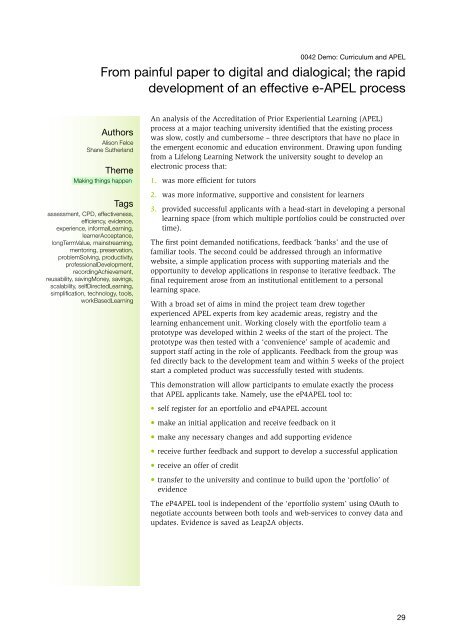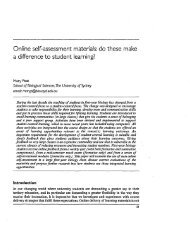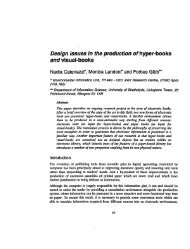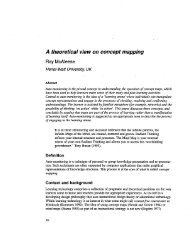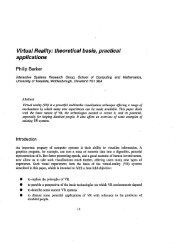Download (2177Kb) - ALT Open Access Repository - Association for ...
Download (2177Kb) - ALT Open Access Repository - Association for ...
Download (2177Kb) - ALT Open Access Repository - Association for ...
Create successful ePaper yourself
Turn your PDF publications into a flip-book with our unique Google optimized e-Paper software.
0042 Demo: Curriculum and APEL<br />
From painful paper to digital and dialogical; the rapid<br />
development of an effective e-APEL process<br />
Authors<br />
Alison Felce<br />
Shane Sutherland<br />
Theme<br />
Making things happen<br />
Tags<br />
assessment, CPD, effectiveness,<br />
efficiency, evidence,<br />
experience, in<strong>for</strong>malLearning,<br />
learnerAcceptance,<br />
longTermValue, mainstreaming,<br />
mentoring, preservation,<br />
problemSolving, productivity,<br />
professionalDevelopment,<br />
recordingAchievement,<br />
reusability, savingMoney, savings,<br />
scalability, selfDirectedLearning,<br />
simplification, technology, tools,<br />
workBasedLearning<br />
An analysis of the Accreditation of Prior Experiential Learning (APEL)<br />
process at a major teaching university identified that the existing process<br />
was slow, costly and cumbersome – three descriptors that have no place in<br />
the emergent economic and education environment. Drawing upon funding<br />
from a Lifelong Learning Network the university sought to develop an<br />
electronic process that:<br />
1. was more efficient <strong>for</strong> tutors<br />
2. was more in<strong>for</strong>mative, supportive and consistent <strong>for</strong> learners<br />
3. provided successful applicants with a head-start in developing a personal<br />
learning space (from which multiple portfolios could be constructed over<br />
time).<br />
The first point demanded notifications, feedback ‘banks’ and the use of<br />
familiar tools. The second could be addressed through an in<strong>for</strong>mative<br />
website, a simple application process with supporting materials and the<br />
opportunity to develop applications in response to iterative feedback. The<br />
final requirement arose from an institutional entitlement to a personal<br />
learning space.<br />
With a broad set of aims in mind the project team drew together<br />
experienced APEL experts from key academic areas, registry and the<br />
learning enhancement unit. Working closely with the eportfolio team a<br />
prototype was developed within 2 weeks of the start of the project. The<br />
prototype was then tested with a ‘convenience’ sample of academic and<br />
support staff acting in the role of applicants. Feedback from the group was<br />
fed directly back to the development team and within 5 weeks of the project<br />
start a completed product was successfully tested with students.<br />
This demonstration will allow participants to emulate exactly the process<br />
that APEL applicants take. Namely, use the eP4APEL tool to:<br />
• self register <strong>for</strong> an eportfolio and eP4APEL account<br />
• make an initial application and receive feedback on it<br />
• make any necessary changes and add supporting evidence<br />
• receive further feedback and support to develop a successful application<br />
• receive an offer of credit<br />
• transfer to the university and continue to build upon the ‘portfolio’ of<br />
evidence<br />
The eP4APEL tool is independent of the ‘eportfolio system’ using OAuth to<br />
negotiate accounts between both tools and web-services to convey data and<br />
updates. Evidence is saved as Leap2A objects.<br />
29


